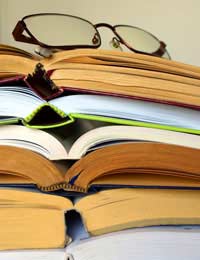Styles of Poetry

Poetry is an art form where a vast amount of rules can and do apply, but where they are often tweaked (or broken) depending upon the poet's needs or desires. Thus, poems come in a variety of styles based on some of the following criteria:
Rhythm/Cadence
Every poem is blessed with an intrinsic rhythm based upon the way that each syllable per line is stressed. Some poems try to mimic the natural sound of everyday conversation, while others use a less conversational cadence.Many poems are arranged as "meters", containing both stressed and unstressed syllables. These are usually the ones that adhere to English-speaking rhythms commonplace in spoken dialogue. One of the most well-known types of meter may be iambic pentameter, whereby five sets of stressed/unstressed syllables are used per line. Shakespeare, unquestionably one of the most widely quoted poets, used iambic pentameter frequently, as is shown here:
"What's in a name? That which we call a rose
By any other name would smell as sweet."
(Romeo and Juliet)
When read or acted aloud, the words have a very natural rhythm thanks to the use of iambic pentameter. However, what works best for your poem may be something very different. It's fun (and recommended) to experiment with different ways of getting your point across to an audience.
Length
Poems come in practically every length, from a few words (think about three-line haiku which are filled with meaning, if brief) to extremely long pieces such as epic poems.The type of poetry an author writes usually guides him or her in determining length. A haiku is necessarily three lines; a sonnet is often 14 lines. Similarly, a limerick (typically amusing in perhaps a "naughty" or ironic way) is five lines in length.
Unless you're a student who is required to write a certain type of poem, like a French rondeau or a Petrarchan sonnet, it's best to use the method that best fits your topic, mood and tone.
Rhyme Scheme
Kids are usually introduced to rhyming poetry very early on, as in the case with this familiar ditty:"Hickory, dickory, dock
The mouse ran up the clock
The clock struck one
The mouse ran down
Hickory, dickory, dock."
Consequently, for some people without much experience or training in the art of poetry, a poem isn't "real" unless it rhymes. However, the wide world of poetry contains many that have no rhyming scheme at all. Therefore, though rhymes can be useful, they needn't be used if they do nothing to advance your works.
If you do choose to incorporate rhymes into your poems, be aware that there are various types of rhyming schemes. For instance, some poets prefer to have rhymes within lines as well as at the ends of lines. Other poets likes to use "near rhymes", words that almost rhyme with one another (like fishies and vicious.) Play around with a variety of rhymes and you'll no doubt find what will be ideal for your piece.
Punctuation
Poems need not follow the same punctuation rules as are used in sentences and paragraphs, though some poets do feel more comfortable sticking with the guidelines they know from writing prose.The best way to determine if the piece you've written needs punctuation is to read it aloud. Ask yourself:
- Will punctuation help the reader understand the poem?
- Will punctuation confuse the reader?
- Will punctuation fit the mood and type of the poem?
Depending upon your answers, you may or may not choose to add commas, capitalisation, quotations, ellipses, et cetera. You can even experiment by taking out all the punctuation and then seeing what happens when you add a comma at a pause versus an en-dash.
Poetry is all about exploration - be adventurous and you'll reap the rewards!

Re: Could I Re-Write a Very Old Book and Publish It?
I want use or rewrite an out-of-print and self-published (by someone else) music sight-reading book for…
Re: Script Writing: The Concept
i want to make urdu script about telling truth always
Re: Script Writing: The Concept
This is a great writing. I love it and I'm so much learning hear
Re: Could I Re-Write a Very Old Book and Publish It?
Wait will you be sued for saying it is a re-write of the book?
Re: Informative Writing
When i start to have my informative writing homework, i find i have nothing to share with others. I am not a master of anything.
Re: Writing a Narrative Script
if you have a narrator in a play, do his/her lines go in italics and parentheses, or italics and brackets?
Re: Writing Romantic Poetry
?? ????? ??? ???? ?? ??? ??? ??? ???? ???? ??? ?? ?? ??? ?? ????? ??? ???? ????.. ..
Re: Styles of Poetry
Bruh bruh bruh tell me you hella capping broski on my mama we chillin up in this piece. Shoutout my home slice Abed.
Re: Script Writing: The Concept
Pls I used a image for my gig on fiverr hope that did not just offend? I found the image on google images and I used it, pls pardon…
Re: How to Write News Articles
Hello a new ship being launched in 2030 or 2033 so The ship is called the R.M.S. Lusitania II It Has More Balance for sink It will be…